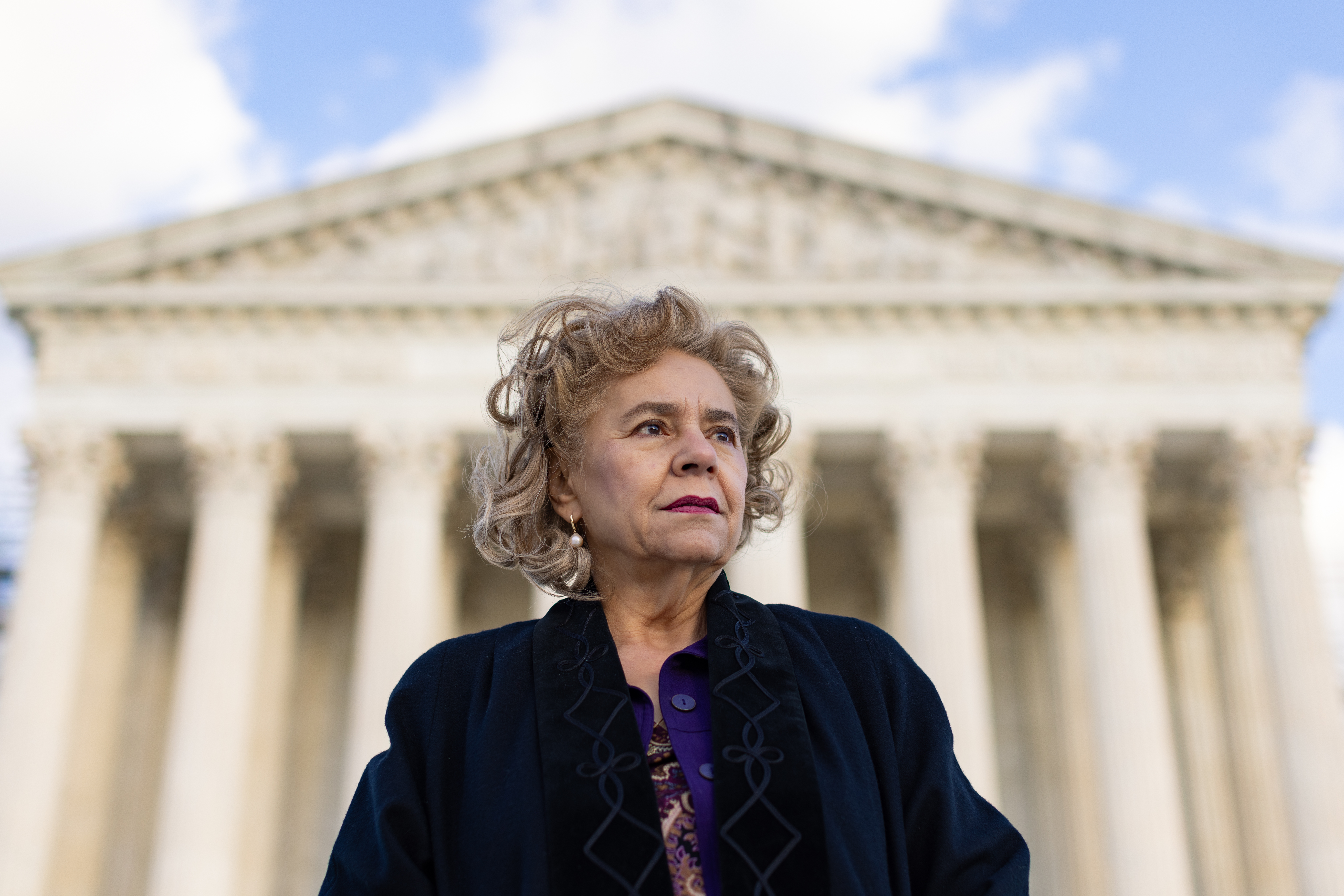One way of suppressing speech is to arrest individuals who have expressed unpopular views. In Gonzalez v. Trevino, the Supreme Court remanded a case to the U.S. Fifth Circuit Court of Appeals to see whether this had happened.
After securing a seat on the city council of Castle Hills, Texas, Sylvia Gonzalez had circulated a petition to remove city manager, Ryan Rapelye. She was subsequently arrested and charged with illegally taking the petition from Mayor Edward Trevino after it was found in her folder after a heated city council meeting.
Councilwoman says her arrest was 'political vendetta'
Gonzalez was charged under a Texas anti-tampering statute that prohibits individuals from intentionally removing government documents, and she spent an evening in jail.
Although the charges were ultimately dismissed, Gonzalez brought a suit alleging that she had been arrested in violation of the First Amendment in retaliation for her role in circulating the petition.
Anti-tampering law never used for this type of conduct
She garnered evidence from a review of 215 other convictions under the the anti-tampering statute and found none had to do with someone attempting to steal a non-binding or expressive document. Most were about creating fake government identification. And others were about fake checks, hiding murder evidence, or cheating on government exams. She concluded that her indictment was a “political vendetta” involving a “sham charge.”
The mayor and police chief argued that the arrest had been valid because city officials had established requisite probable cause under the Fourth Amendment. But the district court had ruled that her Gonzalez’s claim could proceed under the exception to the probable cause rule established in Nieves v. Bartlett (2019). It permitted cases to proceed when there was objective evidence that officials had not charged other similarly situation individuals with the same crime.
On appeal, the 5th U.S. Circuit Court had interpreted this to mean that Gonzalez had to provide “examples of identifiable people who ‘mishandled a government petition’ in the same way Gonzalez did but were not arrested.”
Court: Evidence only has to be objective for retaliatory arrest claim
The Supreme Court disagreed in a per curiam opinion that required only that “the sort of evidence a plaintiff may present for that purpose is that it must be objective in order to avoid ‘the significant problems that would arise from reviewing police conduct under a purely subjective standard.’”
The per curiam opinion did not address Gonzalez’s second argument that the Nieves no-probable-cause rule applied only to “split-second” rather than more “deliberative” arrests.
Justice Alito’s concurring opinion explores retaliatory arrest rulings
Justice Samuel Alito wrote a long concurring opinion to provide guidance in future decisions. In a much more extensive review of the facts that relied in part on surveillance videos, he concluded that the officials had adequate probable cause to believe that Gonzalez had violated the law.
Citing Hartman v. Moore (2006), Alito noted that “[T]he law is settled that as a general matter the First Amendment prohibits government officials from subjecting an individual to retaliatory actions, including criminal prosecutions, for speaking out.”
He further observed that Mt. Healthy City Bd. Of Ed. v. Doyle (1977) had established a two-step process by which individuals must show both that they had engaged in protected speech and that this speech was “a ‘substantial’ or ‘motivating’ factor in their prosecution.
This decision was in tension with “retaliatory-arrest and retaliatory-prosecution claims” because it was often difficult to judge an officer’s state of mind, because “protected speech is often a ‘wholly legitimate consideration’ for officers when deciding whether to file charges or to make an address,” and because “the machinery of criminal justice often works through multiple government officers.
Nieves opened up “a narrow exception of the no-probable-cause rule” when plaintiffs could provide objective evidence of politically motivated prosecution, as in the case of a jaywalking arrest of someone who was a law-enforcement critic. But Alito thought that this exception should remain narrow. Agreeing that Gonzalez did not need to prove that another person was arrested “under the same law for engaging in a carbon-copy course of conduct,” courts must consider the overall context.
Alito further thought that the court should have specifically rejected Gonzalez’s second argument distinguishing between split-second and more deliberative arrests, which he thought had been settled by Nieves. He did not think that this distinction, which had originated in common law (which contained many conflicting principles), should not become a “prefabricate component” of Section 1983 of the U.S. Code, which allows individuals to sue governmental officials for civil rights violations.
Kavanaugh: Case should focus on intention of councilwoman
Justice Brett Kavanaugh concurrence argued that this case could have centered on Gonzalez’s state of mind (mens rea)—had she intentionally or inadvertently taken the document — rather than on the Nieves exception.
Justice Ketanji Brown Jackson’s concurrence, joined by Justice Sonia Sotomayor, believed that Gonzalez had provided other objective evidence of unusual procedures and timing that established the Nieves exception.
Justice Clarence Thomas’ solitary dissent argued that plaintiffs alleging a retaliatory-arrest claim should have to prove a lack of probable cause. He did not believe that there was any basis “in either the common law or our First Amendment precedents’ for the exception created in Nieves and expanded upon today.”
The case appears to be a relatively narrow win for Gonzalez, who must still prove that her arrest was made in retaliation for her First Amendment expression.
John R. Vile is a professor of political science and dean of the Honors College at Middle Tennessee State University.

